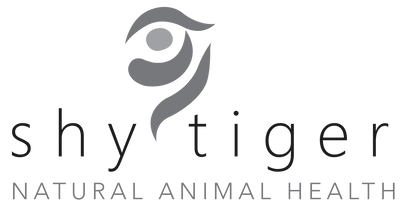Your Cart is Empty
FREE Shipping now available in Australia for orders over $65
FREE Shipping now available in Australia for orders over $65
Managing Allergies in Pets

Allergies in pets, particularly in cats and dogs, are an increasingly complex challenge requiring a multi-layered treatment approach. While medications and environmental changes are crucial, the role of diet is often an underexplored yet potent element in allergy management. The focus of this article is to delve into the intricacies of how specific dietary changes can augment your pet's resilience against allergies, touching upon the rising significance of natural solutions and evidence-based practices in this field.
Carbohydrates and Inflammation
Reducing carbohydrates can significantly mitigate allergic symptoms in pets. When digested, carbohydrates convert into sugars, which are pro-inflammatory. Many commercial pet foods, particularly kibble, are high in carbohydrates—sometimes reaching up to 50% of the total composition. Lowering the intake of carbohydrates to 20% or less can reduce systemic inflammation, thus alleviating the severity of allergic symptoms. One should aim for a balanced diet that meets your pet's nutritional needs without exacerbating underlying conditions.
The Power of Omega-3 Fatty Acids
Omega-3 fatty acids, derived from sources like fish oils and fatty fish such as salmon, are renowned for their anti-inflammatory capabilities. They act as a cornerstone in an allergy management plan. While they can be beneficial, it's essential to consult your veterinarian for accurate dosage and suitability, especially in pets with pre-existing conditions like pancreatitis or bleeding disorders.
Histamines: Hidden Triggers

Histamine is a bioactive compound that plays a significant role in allergic reactions - it essentially causes the 'itch.' Foods rich in histamines, including avocados, spinach, and fermented products like kefir, can exacerbate allergic symptoms. While these foods have numerous health benefits, their histamine content can be counterproductive for pets with allergies. Awareness of such triggers can help you make more informed dietary choices for your pet.
Natural ANTIhistamines in Foods
On the other hand, some foods act as natural antihistamines. These include foods abundant in Vitamin C, like berries, as well as specific compounds like flavinoids that stabilise mast cells—the cells responsible for releasing histamine. Parsley is an excellent example of a natural food that can mitigate allergic reactions.
The Gut-Allergy Connection
The gut microbiome is a burgeoning area of research, revealing its profound impact on general health, including allergies. Introducing quality probiotics specifically designed for pets can significantly improve the gut microbiome, thereby aiding in better allergy management. Recent studies, such as this peer-reviewed article from Veterinary Sciences, elucidate the role of the gut microbiome in immune responses, shedding light on the complex relationship between gut health and allergic symptoms.
Natural Solutions

Natural products can be a valuable addition to a comprehensive allergy management strategy. Brands like Shy Tiger offer Soothe Skin Balm and Soothe Skin Wash, designed to provide immediate relief from skin irritations often associated with allergies. These can be integrated seamlessly into your pet's routine, enhancing the efficacy of dietary and medical interventions.
Conclusion
Managing allergies in pets is not a one-size-fits-all process. It requires a multifaceted, evidence-based approach that includes careful dietary choices, targeted medical treatments, and, where appropriate, natural solutions. By focusing on these components, you can build a more effective and holistic strategy to help manage your pet's allergies. Always consult your veterinarian before making any significant changes to your pet's diet, medication, or skincare routine.

Myth Busting Pet Nutrition
Ever wondered if what you're feeding your pet is truly safe? Dive into the world of pet nutrition myths as we uncover the truth behind commonly misunderstood ingredients. From garlic to avocado and mushrooms, we'll explore the facts and fiction, empowering you to make informed choices for your pet's diet.

Pet Dental Care Matters
Pets can't express dental discomfort like humans. It's a silent problem, progressing stealthily. As a vet, I've made it my mission to educate about dental hygiene and provide a simple solution for your pet's optimal oral health and overall well-being.

Cognitive Decline in Pets
Discover how to navigate cognitive decline in pets with compassion and knowledge. From dietary support to holistic management, empower your furry friend's twilight years. Learn more about enhancing their well-being today.









